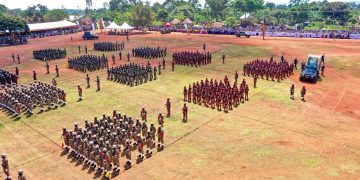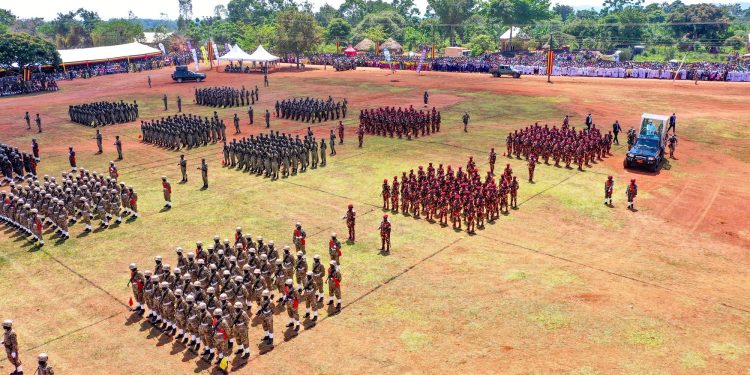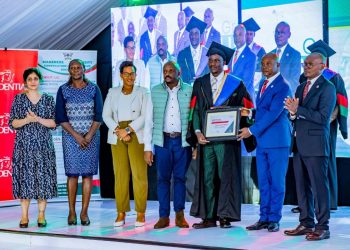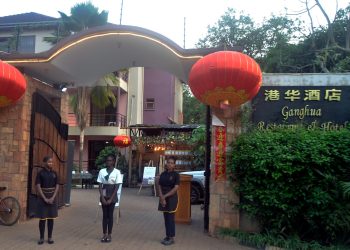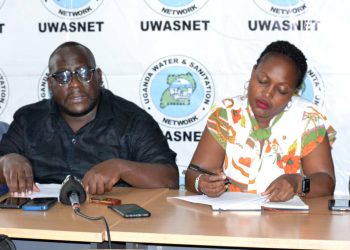The President of Uganda, Yoweri Kaguta Museveni, has shared insights on the economic progress Uganda has made since gaining independence from British colonial rule.
He emphasized that over the years, there has been a notable shift, with more Ugandans now participating in the monetary economy than before.
Historically, he explained that Uganda’s economy was largely defined by colonial structures, primarily revolving around a few key exports: the 3Cs (Coffee, Cotton, and Copper) and the 3Ts (Tobacco, Tea, and Tourism).
He noted that this setup created a small pocket of modern economic activity, isolated within a broader landscape of subsistence farming, underdevelopment, and widespread poverty.
By the time Uganda achieved independence in 1962, an estimated staggering 91% of the population was not engaged in the monetary economy, leaving only 9% involved in it.
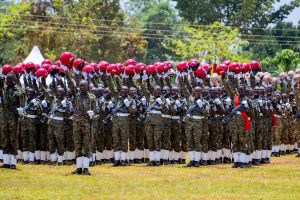
This situation was marked by inadequate housing, lack of educational opportunities for children, absence of clean water, poor nutrition, and overall health challenges for the majority.
President Museveni pointed out that the divisive politics based on identity such as tribal affiliations, religious differences, and gender biases contributed to national instability, culminating in the constitutional crisis of 1966 and the subsequent coup by Idi Amin in 1971.
He made these remarks while addressing Ugandans in Busia during the celebration of 62 years of independence on October 9, 2024, an event that also saw the presence of His Excellency Faustin Archange Touadéra, the President of the Central African Republic.
Museveni noted that when the “ignorant Idi Amin” seized power, he expelled a vital segment of the entrepreneurial class, specifically the Asian community, which had a detrimental impact on the nation’s economy.
“By 1986, when the NRM came to power, the small colonial enclave of the 3Cs and 3Ts, had collapsed. Only coffee and tobacco were still limping on. The whole economy had been informalized into Magendo (smuggling), Kibaanda (foreign currency black market) and Kusamula (speculation). There were acute shortages of the so-called ‘essential commodities”. These were: sugar, salt, paraffine, soap, textiles, human and veterinary drugs etc,” he noted.
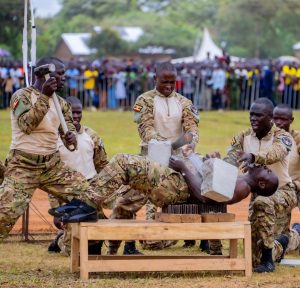
He emphasized that all the goods were being illegally brought into the country due to the breakdown of factories and official import channels.
Drawing on his extensive experience in the resistance movement since the 1960s, he pointed out that they had ingrained three historical missions: prosperity, strategic security, and leveraging the unity of the African people to achieve these goals.
He highlighted that this is why they focused on the idea of wealth generation across various regions.
“All the zones (tribes, religions etc.) needed Uganda for their prosperity and affluence. That is how we distilled the 1st Ideological principle of the NRM: Patriotism. Love Uganda. Why? It is because you need it, for your prosperity,” he said.
He mentioned that they also eventually recognized that Uganda alone was insufficient and began to explore opportunities across the region and the entire African continent for a larger market.
This realization led to the embrace of Pan-Africanism (Love Africa) and subsequently to socio-economic transformation. He emphasized that through the four ideological principles (Patriotism, Pan-Africanism, Social Transformation, and Democracy) and the three historical missions identified, the nation has seen strides across five distinct phases.
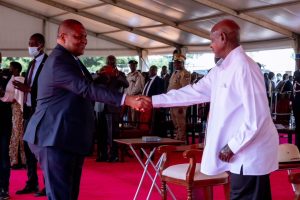
The phases include initiating minimum economic recovery to restore the small colonial enclave of the 3Cs and 3Ts; expanding the limited money economy; diversifying economic activities; enhancing the value of raw materials while promoting industrialization; and transitioning into a knowledge-based economy.
President Museveni highlighted the revival of tea production, which had plummeted from 23 million kgs in 1970 to just 3 million kgs, the resurgence of tourism, the restoration of cotton production, and ongoing efforts to revive and upgrade copper production.
“We did not only revive the production of these products but expanded them as follows: Coffee from 2 million bags to now 9 million bags; tea from 3million kgs to 60million kgs; tourism fromUS$17.89 million of 1970 to US$1,510millionof the pre-covid time,” he added.
He mentioned that Uganda has now evolved beyond the colonial illusion of categorizing crops into “cash crops” and “non-cash crops.”
“We told our people that anything that is used by society on a large scale, can be a cash product. Hence, maize, milk, cassava, beef, bananas, fruits, forest products etc are now cash products,” he noted.
He highlighted that these initiatives focus on reducing imports and boosting the nation’s exports.
He pointed out that a major challenge for Africa and other former colonies has been their reliance on producing solely raw materials.
“This has been a disaster for Africa. Uganda may get US$2.5per Kg for bean coffee. The same Kilogram roasted, turned into coffee powder and packed outside, may fetch US$40. As a consequence of this, from the global coffee value of USD 460bn, the coffee-growing countries of the world are sharing only USD 25bn and Africa, only USD 2.5bn,” he said.
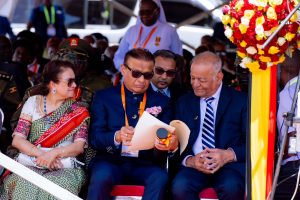
Adding that: “Germany, anon-coffee growing country, earns USD 65bn, more than all the coffee growing Countries of the World. This is how the colonies and the neo-colonies have been donating money, jobs and development energies to Europe and North America. Therefore, we have been deliberately taking steps to end this betrayal by African leaders to Africa,” he added.
He stressed that despite facing opposition, they have achieved success in several areas, including milk, textiles, tin, cement, wood products, maize, gold, and cassava, among others.
“We shall cover the entire spectrum of the raw-materials. Our next target is coffee, copper and iron-ore. We are developing a complete vertically integrated program for these items,” he said.
The President further highlighted that the nation has embraced the knowledge economy, particularly in sectors such as automobiles, vaccines, pharmaceuticals, computer assembly, and, ultimately, manufacturing.
“In all this, we had to first of all, tackle the mistake of allowing big sections of our population to remain outside the money economy-Bakolera EkiddaKyoonka (working only for the stomach),” he said.
Museveni noted that the recent census data reveals that 67% of Ugandans are now part of the money economy.
He emphasized that due to the various initiatives currently implemented, projections indicate that by the conclusion of this financial year in June 2025, Uganda’s economy could reach USD 57.5 billion using the exchange rate method and USD 163.3 billion when assessed by the Public Private Partnerships (PPP) method, even before oil extraction begins.
